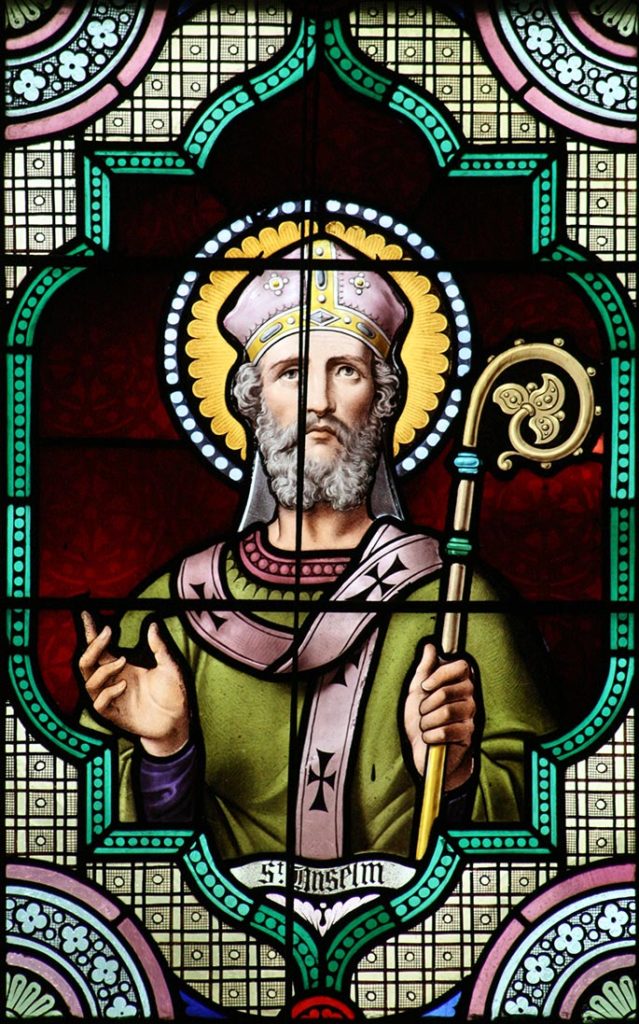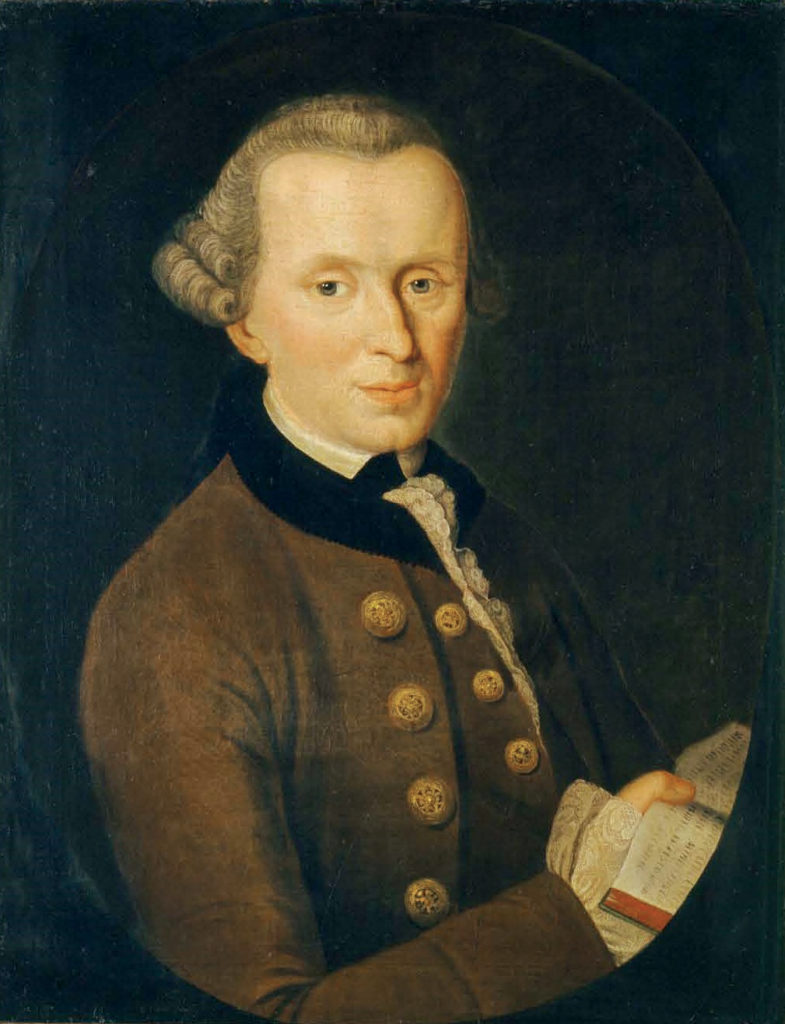This article is an in-depth look at the ontological argument for the existence of God. First, we will take a look at what the ontological argument actually says. Second, we will see if it is a logically sound argument that can serve to prove the existence of God or if it is flawed somehow.
What the ontological argument says

The ontological argument is an argument that tries to prove the existence of God through the use of logic. That means it doesn’t rely on external arguments or facts. It is a series of statements that if true, lead to the conclusion that God exists. The argument was first postulated by Anselm, the Archbishop of Canterbury in his book Proslogion in 1078 C.E. Although there are many variations on the argument now, I will focus on the original because most modern variations are quite similar.
The argument has the following structure:
- There are some claims which are obviously true or obviously false. For instance, it is false to say that a square circle exists. It is true to say that I am older than my younger sister. We don’t need to check or question these claims. Their truth or falsehood is obvious.
- The claim that “God doesn’t exist” is one of the claims that is obviously false. Just knowing the concept of “God” makes it impossible that God doesn’t exist. Knowing what we mean by “God” and denying that such a being exists, would be a contradiction.
- In order to be God, a being would have to be many things. For instance, God would have to be all-powerful. It wouldn’t make sense for God not to be all-powerful. God would also have to be perfect for the same reason. A being can’t be God if it isn’t perfect.
- If something is perfect, it is impossible to improve on it. Any change would by definition make the thing less perfect. If God is a perfect being, it is impossible to improve upon it or even to imagine an improvement upon it. God is not only the greatest being, it is the greatest conceivable being.
- If we could conceive of a being greater than God, than that being would be God. But if God is perfect, no greater being can be conceived by the mind.
- It is greater to exist in reality than it is to just exist in the mind.
- If God existed only in the mind, it would be possible to imagine it existing in reality as well. By definition, God must therefore not just exist in the mind but in reality as well.
- Therefore, God exists in reality.
Where is the fallacy?
The philosopher Bertrand Russell once said that “the argument does not, to a modern mind, seem very convincing, but it is easier to feel convinced that it must be fallacious than it is to find out precisely where the fallacy lies.” He was right. When you read it, the argument sounds logical but I think almost anyone will agree that it sounds suspiciously easy or fake. I have even described it as merely word-play and I am still convinced that it is, despite the fact that Anselm was serious when he penned it.
It can prove almost anything
There are several objections we can make. The first to do so was a contemporary of Anselm, the monk Gaunilo of Marmoutiers, who suggested that using the same arguments, it would be possible to prove the existence of a perfect island. I have used the argument to prove that Aragorn was the greatest king. Obviously, such conclusions can not be correct so this sheds doubt on the logic of Anselm’s ontological argument.
Anselm’s defense
In response to the criticism of Gaunilo and his perfect island, Anselm postulated that God wasn’t just a perfect being, it was also a necessary being, a being that cannot not be. In other words, while Gaunilo’s perfect island need not exist, God has to exist. According to Anselm, this followed from the fact that the universe has a first cause and that this first cause had to be a being.
Unfortunately for poor Anselm, he failed to substantiate both of these additional claims. Since he didn’t meet his burden of proof, something which anyone making a positive claim must be able to do, the fact that God is a necessary being is a baseless assertion.
Objection of Immanuel Kant
Prussian philosopher Immanuel Kant offered a far more devastating objection to Anselm’s logic. In his book “Critique of pure reason” (1781), Kant objected that existence is not a property of something. If something exists, we do not say that it has the property of existence. Similarly, if something does not exist, we do not say that it has the property of non-existence or that it lacks the property of existence. If that were true, people who say that God doesn’t exist, would be saying that God does exist but lacks the property of existence. God can’t both exist and lack the property of existence. Rather, when we say that something exists, we mean that we find a real world example of a concept that exists in our mind.
Kant demonstrates this by explaining that when we say something exists, we add nothing to the description of the thing in question. For instance, if I describe a ball, I can describe the color, the size, the texture and the weight. If I add existence to the description, it doesn’t change the description at all. The ball is the way I describe it, whether it exists as a concept or as a real object. Saying that the ball exists, says something about the world but not about the ball itself.
Likewise, adding existence to the description of God, doesn’t change the description of God. So, as Kant argues, the description of a God that exists and a God that does not exist, are identical. The conceptual God in our mind and the actual God in the world would both be all-powerful, perfect, etc. If they are identical, it’s impossible to say that the God that exists is greater than the God that does not. Hence, Anselm’s logic fails.
Only concepts
Another objection that can be made against Anselm’s ontological argument, is the way he describes God as existing in the mind. The problem with that statement is that things do not exist in the mind at all. Minds aren’t inhabited by things existing within them. Rather, minds contain concepts of things, not the things themselves. Therefore, it can’t be said that existing in reality is greater than existing only in the mind for the simple reason that things do not exist in the mind. So one can only say that the concept of a God existing in reality is greater than the concept of a God existing only in the mind, which says nothing about the actual existence or non-existence of God.
Minds contain concepts of things, not the things themselves.
Since the mind only contains concepts, Anselm’s logic doesn’t even get off the ground. There are many concepts which can and do exist in the mind yet we find no examples of them in the real world. For instance, my mind contains the concept of dragons, vampires, werewolves, goblins and many other fantasy creatures. None of these concepts have examples in the real world.
The concept of God
Another problem with the ontological argument was raised by St. Thomas Aquinas. A formidable theologian and philosopher himself, Aquinas wasn’t convinced by the ontological argument. Aquinas argued that rather than understanding what the concept of “God” means, many people have different concepts of God in their minds. If the ontological argument works at all, it works only for people who have the same understanding of the concept of God.
Conclusion
While there are more objections to the ontological argument for the existence of God, I think I have satisfactorily shown that it is a deeply flawed argument. When you hear it, you immediately get the impression that someone is trying to trick you but it is much more difficult to see where exactly the trick is. My opinion is that this an argument is of the category “if you can’t dazzle them with brilliance, baffle them with bullshit”. While this may sound unkind to poor Anselm, I fail to see how anyone of any intelligence can be convinced of God’s existence with it.

